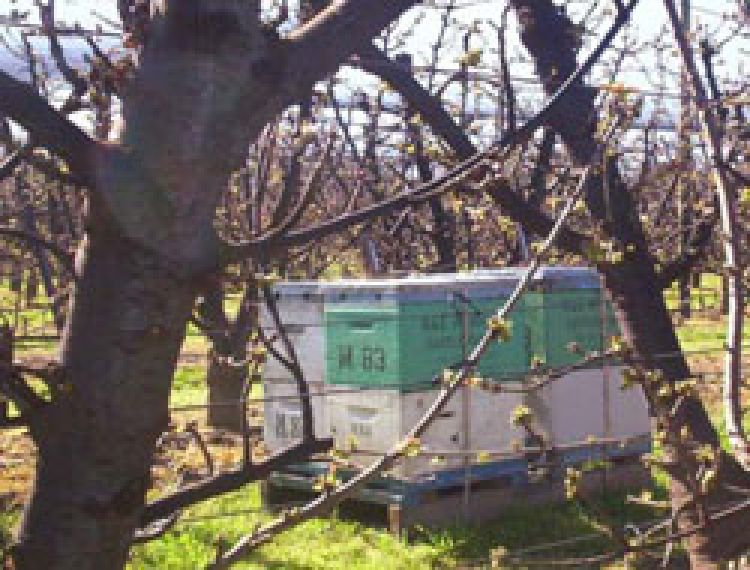Pollination services
Pollination of crops by bees is integral to Victorian agriculture and horticulture. Without bee pollination some crops would suffer greatly reduced yields.
Benefits of pollination services
Many crops benefit from bee pollination resulting in:
- increased yield
- better quality produce.
Pollination services offered by beekeepers are a controlled way of ensuring effective bee pollination of crops.
Some beekeepers are paid to bring their hives into a particular crop to ensure pollination.
Other beekeepers offer the pollination service for free so their bees have access to the crop's pollen and nectar.
Shared responsibility for pollination success
 Both the beekeeper and the crop owner are responsible for ensuring the success of the service.
Both the beekeeper and the crop owner are responsible for ensuring the success of the service.
Beekeeper's responsibility
The beekeeper must ensure the bees:
- are well managed and healthy
- can provide an effective pollination service.
Crop owner's responsibility
The crop owner must ensure the bees are not disturbed or harmed through the use of agricultural chemicals.
A number of bee death incidents have been caused from exposure to agricultural chemicals (particularly insecticides) used on crops in the area where the bees were pollinating.
It is absolutely critical that agricultural chemicals are not used in a crop being pollinated by bees unless the beekeeper has been notified, at least 48 hours before the spraying occurs.
The beekeeper will assess the risk to the bees and choose to:
- leave the hives in the crop when it is sprayed
- move them to a safe site while the spraying is in progress
- close the hives down while the spraying is in progress.
If agricultural chemicals with a residual effect are used, a delay may be needed before the hives are taken back to the crop. You must refer to the chemical use and withholding period instructions on the chemical product label.
Communication
Beekeepers must:
- Have clear lines of communication with the crop owner, and stress the importance of being notified before any spraying takes place (although insecticides are the most toxic agricultural chemicals to bees, some herbicides and fungicides can be toxic too).
- Inspect their hives regularly and maintain them in prime condition.
Growers must:
- Have clear lines of communication with the beekeeper, and notify the beekeeper before undertaking any spraying, not only in the crop where the bees are located, but in nearby areas as well.
- Ensure the bees are not disturbed so they have the best chance of providing effective pollination. Communication is the key, and a simple phone call can prevent damage to bees, and lowered crop yields. It is a good idea to keep the contact details of both beekeepers and crop owners for reference including their landline and mobile phone numbers.
Living in Harmony - Pesticides and Bees can help beekeepers and chemical users to build a mutually beneficial relationship.